





What A Colorado Criminal Defense Attorney Does – Part I – Pre-Trial
Introduction – What follows is Part I of the outline for the proper and competent performance of a Colorado or any criminal defense lawyer for that matter. Those who are charged with crimes and who have the resources to hire private counsel should have a solid and complete understanding of the kinds of responsibilities and performance standards that are expected from their lawyers. This article assists in that understanding.
The Role of Criminal Defense Lawyers
(a) The paramount obligation of criminal defense Criminal defense lawyers is to provide zealous and quality representation to their clients at all stages of the criminal process. Attorneys also have an obligation to abide by ethical norms and act in accordance with the rules of the court.
Education, Training and Experience of Criminal Defense Lawyers
(a) To provide quality representation, Criminal defense lawyers must be familiar with the substantive criminal law and the law of criminal procedure and its application in the particular jurisdiction. Criminal defense lawyers has a continuing obligation to stay abreast of changes and developments in the law. Where appropriate, Criminal defense lawyers should also be informed of the practices of the specific judge before whom a case is pending.
(b) Prior to handling a criminal matter, Criminal defense lawyers should have sufficient experience or training to provide quality representation.
General Duties of Defense Criminal defense lawyers
(a) Before agreeing to act as a Criminal defense lawyer, the lawyer has an obligation to make sure that Criminal defense lawyers has available sufficient time, resources, knowledge and experience to offer quality representation to a defendant in a particular matter. If it later appears that the criminal defense lawyers is unable to offer quality representation in the case, Criminal defense lawyers should move to withdraw.
(b) Criminal defense lawyers must be alert to all potential and actual conflicts of interest that would impair Criminal defense lawyers’s ability to represent a client. Where appropriate, Criminal defense lawyers may be obliged to seek an advisory opinion on any potential conflicts.
(c) Criminal defense lawyers has the obligation to keep the client informed of the progress of the case, where it is possible to do so.
The General Obligations of Criminal defense lawyers Regarding Pretrial Release
The attorney has an obligation to attempt to secure the pretrial release of the client under the conditions most favorable and acceptable to the client.
Initial Interview
(a) Preparation:
Prior to conducting the initial interview the attorney, should, where possible:
(1) be familiar with the elements of the offense and the potential punishment, where the charges against the client are already known;
(2) obtain copies of any relevant documents which are available, including copies of any charging documents, recommendations and reports made by bail agencies concerning pretrial release, and law enforcement reports that might be available;
(3) be familiar with the legal criteria for determining pretrial release and the procedures that will be followed in setting those conditions;
(4) be familiar with the different types of pretrial release conditions the court may set and whether private or public agencies are available to act as a custodian for the client’s release;
(5) be familiar with any procedures available for reviewing the trial judge’s setting of bail.
(b) The Interview:
(1) The purpose of the initial interview is both to acquire information from the client concerning pretrial release and also to provide the client with information concerning the case. Criminal defense lawyers should ensure at this and all successive interviews and proceedings that barriers to communication, such as differences in language or literacy, be overcome.
(2) Information that should be acquired includes, but is not limited to:
(A) the client’s ties to the community, including the length of time he or she has lived at the current and former addresses, family relationships, immigration status (if applicable), employment record and history;
(B) the client’s physical and mental health, educational and armed services records;
(C) the client’s immediate medical needs;
(D) the client’s past criminal record, if any, including arrests and convictions for adult and juvenile offenses and prior record of court appearances or failure to appear in court; Criminal defense lawyers should also determine whether the client has any pending charges and also whether he or she is on probation or parole and the client’s past or present performance under supervision;
(E) the ability of the client to meet any financial conditions of release;
(F) the names of individuals or other sources that criminal defense lawyers can contact to verify the information provided by the client; criminal defense lawyers should obtain the permission of the client before contacting these individuals;
(3) Information to be provided the client includes, but is not limited to:
(A) an explanation of the procedures that will be followed in setting the conditions of pretrial release;
(B) an explanation of the type of information that will be requested in any interview that may be conducted by a pretrial release agency and also an explanation that the client should not make statements concerning the offense;
(C) an explanation of the attorney-client privilege and instructions not to talk to anyone about the facts of the case without first consulting with the attorney;
(D) the charges and the potential penalties;
E) a general procedural overview of the progression of the case, where possible;
(c) Supplemental Information:
Whenever possible, criminal defense lawyers should use the initial interview to gather additional information relevant to preparation of the defense. Such information may include, but is not limited to:
(1) the facts surrounding the charges against the client
(2) any evidence of improper police investigative practices or prosecutorial conduct which affects the client’s rights;
(3) any possible witnesses who should be located;
(4) any evidence that should be preserved;
(5) where appropriate, evidence of the client’s competence to stand trial and/or mental state at the time of the offense.
Pretrial Release Proceedings
(a) Criminal defense lawyers should be prepared to present to the appropriate judicial officer a statement of the factual circumstances and the legal criteria supporting release and, where appropriate, to make a proposal concerning conditions of release.
(b) Where the client is not able to obtain release under the conditions set by the court, criminal defense lawyers should consider pursuing modification of the conditions of release under the procedures available.
(c) If the court sets conditions of release which require the posting of a monetary bond or the posting of real property as collateral for release, criminal defense lawyers should make sure the client understands the available options and the procedures that must be followed in posting such assets. Where appropriate, criminal defense lawyers should advise the client and others acting in his or her behalf how to properly post such assets.
(d) Where the client is incarcerated and unable to obtain pretrial release, criminal defense lawyers should alert the court to any special medical or psychiatric and security needs of the client and request that the court direct the appropriate officials to take steps to meet such special needs.
Presentment and Arraignment
The attorney should preserve the client’s rights at the initial appearance on the charges by:
(1) entering a plea of not guilty in all but the most extraordinary circumstances where a sound tactical reason exists for not doing so;
(2) requesting a trial by jury, if failure to do so may result in the client being precluded from later obtaining a trial by jury;
(3) seeking a determination of whether there is probable cause to support the charges alleged and, if there is not probable cause, or other grounds exist for dismissal, requesting that the court dismiss the charge or charges;
(4) requesting a timely preliminary hearing if it is provided for under the rules of the court unless there is a sound tactical reason for not to do so.
The Preliminary Hearing
(a) Where the client is entitled to a preliminary hearing, the attorney should take steps to see that the hearing is conducted timely unless there are strategic reasons for not doing so.
(b) In preparing for the preliminary hearing, the attorney should become familiar with:
(1) the elements of each of the offenses alleged;
(2) the law of the jurisdiction for establishing probable cause;
(3) factual information which is available concerning probable cause.
Prosecution Requests for Non-Testimonial Evidence
The attorney should be familiar with the law governing the prosecution’s power to require a defendant to provide non-testimonial evidence (such as handwriting exemplars and physical specimens), the circumstances in which a defendant may refuse to do so, the extent to which criminal defense lawyers may participate in the proceedings, and the record of the proceedings required to be maintained.
Investigation
(a) A criminal defense lawyer has a duty to conduct an independent investigation regardless of the accused’s admissions or statements to the lawyer of facts constituting guilt. The investigation should be conducted as promptly as possible.
(b) Sources of investigative information may include the following:
(1) Charging documents
Copies of all charging documents in the case should be obtained and examined to determine the specific charges that have been brought against the accused. The relevant statutes and precedents should be examined to identify:
(A) the elements of the offense(s) with which the accused is charged;
(B) the defenses, ordinary and affirmative, that may be available;
(C) any defects in the charging documents, constitutional or otherwise, such as statute of limitations or double jeopardy.
(2) the accused:
If not previously conducted, an in-depth interview of the client should be conducted as soon as possible and appropriate after appointment or retention of a criminal defense lawyer. The interview with the client should be used to:
(A) seek information concerning the incident or events giving rise to the charge(s) or improper police investigative practices or prosecutorial conduct which affects the client’s rights;
(B) explore the existence of other potential sources of information relating to the offense;
(C) collect information relevant to sentencing.
(3) potential witnesses:
Criminal defense lawyers should consider whether to interview the potential witnesses, including any complaining witnesses and others adverse to the accused. If the attorney conducts such interviews of potential witnesses, he or she should attempt to do so in the presence of a third person who will be available, if necessary, to testify as a defense witness at trial. Alternatively, Criminal defense lawyers should have an investigator conduct such interviews.
(4) the police and prosecution:
A criminal defense lawyer should make efforts to secure information in the possession of the prosecution or law enforcement authorities, including police reports. Where necessary, criminal defense lawyers should pursue such efforts through formal and informal discovery unless a sound tactical reason exists for not doing so.
(5) physical evidence:
Where appropriate, criminal defense lawyers should make a prompt request to the police or investigative agency for any physical evidence or expert reports relevant to the offense or sentencing.
(6) the scene:
Where appropriate, Criminal defense lawyers should attempt to view the scene of the alleged offense. This should be done under circumstances as similar as possible to those existing at the time of the alleged incident (e.g., weather, time of day, and lighting conditions).
(7) expert assistance
Criminal defense lawyers should secure the assistance of experts where it is necessary or appropriate to:
(A) the preparation of the defense;
(B) adequate understanding of the prosecution’s case;
(C) rebut the prosecution’s case.
Formal and Informal Discovery
(a) A criminal defense lawyers has a duty to pursue as soon as practicable discovery procedures provided by the rules of the jurisdiction and to pursue such informal discovery methods as may be available to supplement the factual investigation of the case. In considering discovery requests, criminal defense lawyers should take into account that such requests may trigger reciprocal discovery obligations.
(b) Criminal defense lawyers should consider seeking discovery of the following items:
(1) potential exculpatory information
(2) the names and addresses of all prosecution witnesses, their prior statements, and criminal record, if any;
(3) all oral and/ or written statements by the accused, and the details of the circumstances under which the statements were made.
(4) the prior criminal record of the accused and any evidence of other misconduct that the government may intend to use against the accused;
(5) all books, papers, documents, photographs, tangible objects, buildings or places, or copies, descriptions, or other representations, or portions thereof, relevant to the case;
(6) all results or reports of relevant physical or mental examinations, and of scientific tests or experiments, or copies thereof;
(7) statements of co-defendants;
Theory of the Case
During investigation and trial preparation, Criminal defense lawyers should develop and continually reassess a theory of the case.
The Decision to File Pretrial Motions
(a) Criminal defense lawyers should consider filing an appropriate motion whenever there exists a good-faith reason to believe that the applicable law may entitle the defendant to relief which the court has discretion to grant.
(b) The decision to file pretrial motions should be made after thorough investigation, and after considering the applicable law in light of the circumstances of each case. Among the issues that Criminal defense lawyers should consider addressing in a pretrial motion are:
(1) the pretrial custody of the accused;
(2) the constitutionality of the implicated statute or statutes;
(3) the potential defects in the charging process;
(4) the sufficiency of the charging document;
(5) the propriety and prejudice of any joinder of charges or defendants in the charging document;
(6) the discovery obligations of the prosecution and the reciprocal discovery obligations of the defense;
(7) the suppression of evidence gathered as the result of violations of the Fourth, Fifth or Sixth Amendments to the United States Constitution, or corresponding or additional state constitutional provisions, including;
(A) the fruits of illegal searches or seizures;
(B) involuntary statements or confessions;
(C) statements or confessions obtained in violation of the accused’s right to criminal defense lawyers, or privilege against self-incrimination;
(D) unreliable identification evidence which would give rise to a substantial likelihood of irreparable misidentification.
(8) suppression of evidence gathered in violation of any right, duty or privilege arising out of state or local law;
(9) access to resources which or experts who may be denied to an accused because of his or her indigence;
(10) the defendant’s right to a speedy trial;
(11) the defendant’s right to a continuance in order to adequately prepare his or her case;
(12) matters of trial evidence which may be appropriately litigated by means of a pretrial motion in limine;
(13) matters of trial or courtroom procedure.
(c) Criminal defense lawyers should withdraw or decide not to file a motion only after careful consideration, and only after determining whether the filing of a motion may be necessary to protect the defendant’s rights against later claims of waiver or procedural default. In making this decision, Criminal defense lawyers should remember that a motion may have many objectives in addition to the ultimate relief requested by the motion. Criminal defense lawyers thus should consider whether:
(1) the time deadline for filing pretrial motions warrants filing a motion to preserve the client’s rights, pending the results of further investigation;
(2) changes in the governing law might occur after the filing deadline which could enhance the likelihood that relief ought to be granted;
(3) later changes in the strategic and tactical posture of the defense case may occur which affect the significance of potential pretrial motions.
Filing and Arguing Pretrial Motions
(a) Motions should be filed in a timely manner, should comport with the formal requirements of the court rules and should succinctly inform the court of the authority relied upon. In filing a pretrial motion, Criminal defense lawyers should be aware of the effect it might have upon the defendant’s speedy trial rights.
(b) When a hearing on a motion requires the taking of evidence, Criminal defense lawyers’s preparation for the evidentiary hearing should include:
(1) investigation, discovery and research relevant to the claim advanced;
(2) the subpoenaing of all helpful evidence and the subpoenaing and preparation of all helpful witnesses;
(3) full understanding of the burdens of proof, evidentiary principles and trial court procedures applying to the hearing, including the benefits and costs of having the client testify.
Subsequent Filing of Pretrial Motions
Criminal defense lawyers should be prepared to raise during the subsequent proceedings any issue which is appropriately raised pretrial, but could not have been so raised because the facts supporting the motion were unknown or not reasonably available. Further, Criminal defense lawyers should be prepared to renew a pretrial motion if new supporting information is disclosed in later proceedings.
The Plea Negotiation Process and the Duties of Criminal Defense Lawyers
(a) Criminal defense lawyers should explore with the client the possibility and desirability of reaching a negotiated disposition of the charges rather than proceeding to a trial and in doing so should fully explain the rights that would be waived by a decision to enter a plea and not to proceed to trial.
(b) Criminal defense lawyers should ordinarily obtain the consent of the client before entering into any plea negotiation.
(c) Criminal defense lawyers should keep the client fully informed of any continued plea discussion and negotiations and convey to the accused any offers made by the prosecution for a negotiated settlement.
(d) Criminal defense lawyers should not accept any plea agreement without the client’s express authorization.
(e) The existence of ongoing tentative plea negotiations with the prosecution should not prevent Criminal defense lawyers from taking steps necessary to preserve a defense.
The Contents of the Negotiations
(a) In order to develop an overall negotiation plan, Criminal defense lawyers should be fully aware of, and make sure the client is fully aware of:
(1) the maximum term of imprisonment and fine or restitution that may be ordered, and any mandatory punishment or sentencing system;
(2) the possibility of forfeiture of assets;
(3) other consequences of conviction such as deportation, and civil disabilities;
(4) any possible and likely sentence enhancements or parole consequences;
(5) the possible and likely place and manner of confinement;
(6) the effect of good-time credits on the sentence of the client and the general range of sentences for similar offenses committed by defendants with similar backgrounds.
(b) In developing a negotiation strategy, Criminal defense lawyers should be completely familiar with:
(1) concessions that the client might offer the prosecution as part of a negotiated settlement, including, but not limited to:
(A) not to proceed to trial on the merits of the charges;
(B) to decline from asserting or litigating any particular pretrial motions;
(C) an agreement to fulfill specified restitution conditions and/or participation in community work or service programs, or in rehabilitation or other programs.
(D) providing the prosecution with assistance in prosecuting or investigating the present case or other alleged criminal activity.
(2) benefits the client might obtain from a negotiated settlement, including, but not limited to an agreement:
(A) that the prosecution will not oppose the client’s release on bail pending sentencing or appeal;
(B) that the defendant may enter a conditional plea to preserve the right to litigate and contest certain issues affecting the validity of a conviction;
(C) to dismiss or reduce one or more of the charged offenses either immediately, or upon completion of a deferred prosecution agreement;
(D) that the defendant will not be subject to further investigation or prosecution for uncharged alleged criminal conduct;
(E) that the defendant will receive, with the agreement of the court, a specified sentence or sanction or a sentence or sanction within a specified range;
(F) that the prosecution will take, or refrain from taking, at the time of sentencing and/or in communications with the preparer of the official presentence report, a specified position with respect to the sanction to be imposed on the client by the court.
(G) that the prosecution will not present, at the time of sentencing and/or in communications with the preparer of the official presentence report, certain information.
(H) that the defendant will receive, or the prosecution will recommend, specific benefits concerning the accused’s place and/or manner of confinement and/or release on parole and the information concerning the accused’s offense and alleged behavior that may be considered in determining the accused’s date of release from incarceration.
(c) In conducting plea negotiations, Criminal defense lawyers should be familiar with:
(1) the various types of pleas that may be agreed to, including a plea of guilty, a plea of nolo contendere, a conditional plea of guilty and a plea in which the defendant is not required to personally acknowledge his or her guilt (Alford plea);
(2) the advantages and disadvantages of each available plea according to the circumstances of the case;
(3) whether the plea agreement is binding on the court and prison and parole authorities.
(d) In conducting plea negotiations, criminal defense lawyers should attempt to become familiar with the practices and policies of the particular jurisdiction, judge and prosecuting authority which may affect the content and likely results of negotiated plea bargains.
The Decision to Enter a Plea of Guilty
(a) Criminal defense lawyers should inform the client of any tentative negotiated agreement reached with the prosecution, and explain to the client the full content of the agreement, and the advantages and disadvantages and the potential consequences of the agreement.
(b) The decision to enter a plea of guilty rests solely with the client, and criminal defense lawyers should not attempt to unduly influence that decision.
Entry of the Plea before the Court
(a) Prior to the entry of the plea, criminal defense lawyers should:
(1) make certain that the client understands the rights he or she will waive by entering the plea and that the client’s decision to waive those rights is knowing, voluntary and intelligent;
(2) make certain that the client fully and completely understands the conditions and limits of the plea agreement and the maximum punishment, sanctions and other consequences the accused will be exposed to by entering a plea;
(3) explain to the client the nature of the plea hearing and prepare the client for the role he or she will play in the hearing, including answering questions of the judge and providing a statement concerning the offense.
(b) When entering the plea, criminal defense lawyers should make sure that the full content and conditions of the plea agreement are placed on the record before the court.
(c) After entry of the plea, criminal defense lawyers should be prepared to address the issue of release pending sentencing. Where the client has been released pretrial, criminal defense lawyers should be prepared to argue and persuade the court that the client’s continued release is warranted and appropriate. Where the client is in custody prior to the entry of the plea, criminal defense lawyers should, where practicable, advocate for and present to the court all reasons warranting the client’s release on bail pending sentencing.
*Attiribution is made to National Legal Aid & Defender Association, 1140 Connecticut Ave. NW, Suite 900, Washington, DC 20036 – [email protected]
Other Articles of Interest:
- Colorado State Felony Computer Crime Laws (18-5.5-102)
- Sexual Assault On A Child By One In A Position Of Trust (18-3-405.3 (2)(b)) – Pattern of Abuse (18-3-405.3 (2)(d))
- Indeterminate Sentence for Sex Offenders (18-1.3-1004)
- Colorado Criminal Law – Do I Have To Aid A Police Officer If Ordered? – 18-8-107
- The Role and Responsibility of a Colorado Criminal Defense Attorney






















